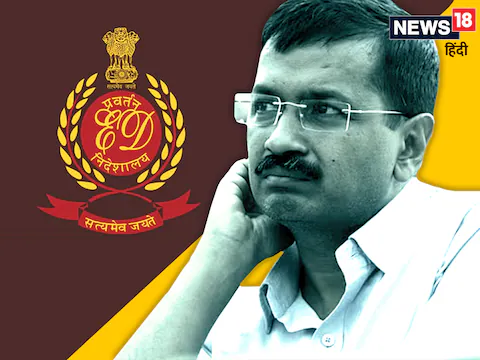In the heart of India’s political capital, New Delhi, anticipation mounts as the Supreme Court prepares to weigh in on the fate of Delhi Chief Minister, Arvind Kejriwal. Accused in a high-profile money laundering case linked to Delhi’s alleged liquor scam, Kejriwal’s legal battle reaches a pivotal juncture today. Amidst this legal showdown, the Aam Aadmi Party (AAP) remains steadfast in its optimism, eagerly anticipating a favorable ruling from the highest court in the land.
Supreme Court Showdown: AAP’s Hopeful Outlook
Awaiting a Verdict
The Supreme Court, led by the bench of Justice Sanjeev Khanna and Justice Dipankar Dutta, is poised to deliberate on CM Kejriwal’s petition. With bated breath, AAP and its supporters look to the judiciary for a decision that could potentially shape the course of upcoming elections.
AAP’s Confidence
Delhi Cabinet Minister Saurabh Bhardwaj exudes confidence in the judiciary, expressing AAP’s unwavering belief in the fairness of the legal process. “We are sure that to safeguard democracy and uphold the integrity of our electoral system, the Supreme Court will grant Arvind Kejriwal the right to campaign,” asserts Bhardwaj.
Kejriwal’s Stand: Defending Democracy
Unprecedented Attack on Democracy
Arvind Kejriwal vehemently denounces his arrest as an assault on democratic principles. Characterizing his detention as “illegal,” Kejriwal contends that it represents a grave threat to the foundational tenets of democracy, including the rights to free and fair elections and federalism.
Timely Arrest or Political Maneuver?
Kejriwal lambasts the timing and manner of his arrest, decrying it as a calculated move to stifle opposition voices. Coming on the heels of the implementation of the model code of conduct for elections, Kejriwal perceives his arrest as a blatant act of political vendetta.
Misuse of Power
Accusing the Central government of abusing its authority, Kejriwal alleges misuse of investigative agencies to quash dissent. He asserts that his arrest under the Prevention of Money Laundering Act (PMLA) is emblematic of the government’s overreach and attempts to undermine opposition parties.
Legal Battles and Judicial Verdicts
Tihar Jail Sojourn
Following the Delhi High Court’s refusal to shield him from punitive action, Kejriwal finds himself behind bars in Tihar jail, awaiting legal recourse. His confinement symbolizes the nexus between politics and the judiciary, with each legal ruling shaping the trajectory of his political career.
High Court Upholds Arrest
In a significant blow to Kejriwal’s legal defense, the Delhi High Court validates his arrest in the money laundering case. Citing his repeated non-compliance with investigative summons, the court affirms the legality of punitive action taken by enforcement agencies.
Allegations and Investigations
The case revolves around allegations of corruption and money laundering stemming from the formulation and implementation of Delhi’s excise policy. As investigations unfold, the intricacies of bureaucratic malfeasance come to light, painting a damning portrait of institutional corruption.
FAQs
1. What led to Arvind Kejriwal’s arrest?
- Kejriwal’s arrest stems from allegations of money laundering related to Delhi’s excise policy, with enforcement agencies citing his non-cooperation as grounds for punitive action.
2. Why does AAP remain optimistic amid legal challenges?
- AAP maintains faith in the judiciary’s impartiality, believing that justice will prevail and Kejriwal will be vindicated of all charges.
3. How does Kejriwal characterize his arrest?
- Kejriwal views his arrest as a politically motivated move orchestrated to silence dissent and undermine democratic norms.
4. What impact does Kejriwal’s legal battle have on Indian politics?
- Kejriwal’s legal saga underscores the intersection of law and politics, highlighting the fraught nature of governance in India’s vibrant democracy.
5. What are the broader implications of the case?
- Beyond Kejriwal’s personal ordeal, the case raises questions about the integrity of India’s electoral process and the autonomy of state governments in the face of federal authority.
6. How does the public perceive Kejriwal’s predicament?
- Opinions vary, with some viewing Kejriwal as a victim of political persecution while others see his arrest as a consequence of alleged wrongdoing.
Conclusion
As the legal saga of Arvind Kejriwal unfolds, it serves as a microcosm of India’s vibrant democracy, where the interplay of law, politics, and public opinion shapes the contours of governance. With the Supreme Court poised to deliver its verdict, the nation awaits with bated breath, mindful of the far-reaching implications of this judicial pronouncement. In the crucible of legal scrutiny, the fate of one man intersects with the destiny of a nation, underscoring the enduring relevance of justice in the fabric of Indian democracy.
Stay updated with all the insights.
Navigate news, 1 email day.
Subscribe to Qrius

